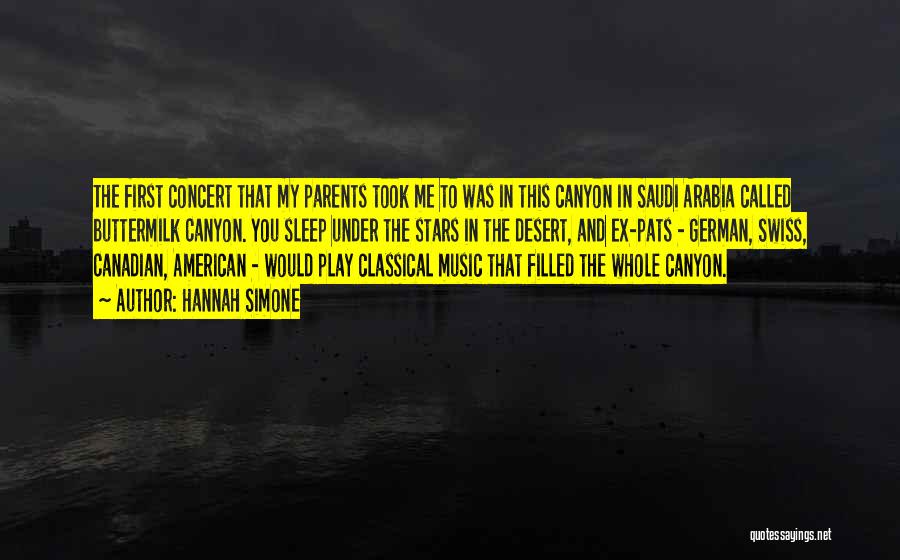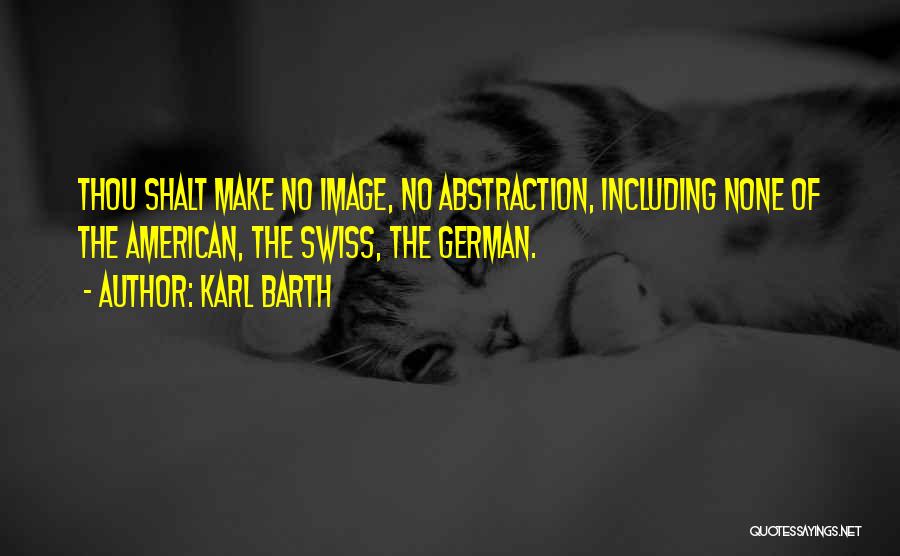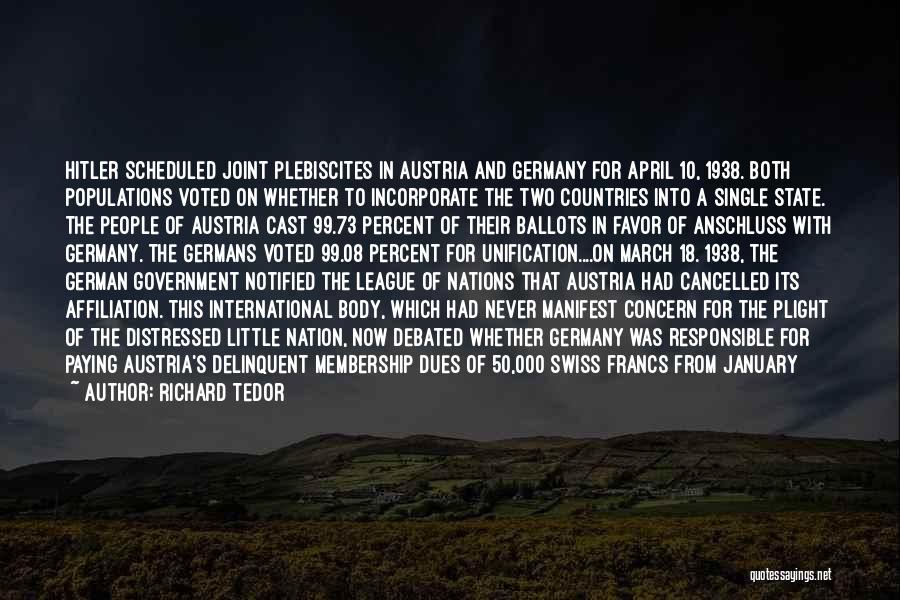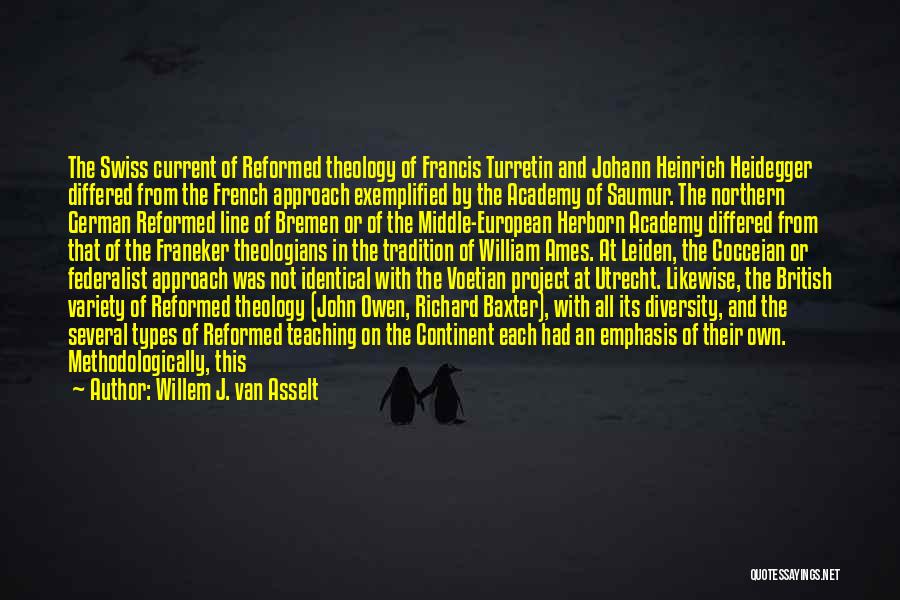Swiss German Quotes & Sayings
Enjoy reading and share 9 famous quotes about Swiss German with everyone.
Top Swiss German Quotes

You know, in 1975 I couldn't get a job in New York City because I was American. The kitchens were predominantly run by French, Swiss, German, and basically I got laughed at. I had education, I had experience, but got laughed at because I was American. — Emeril Lagasse

The first concert that my parents took me to was in this canyon in Saudi Arabia called Buttermilk Canyon. You sleep under the stars in the desert, and ex-pats - German, Swiss, Canadian, American - would play classical music that filled the whole canyon. — Hannah Simone

I do not deny my German identity. But I also feel Swiss. Of my eight great-grandparents, seven were born Swiss. I have been living in Switzerland for more than 50 years. — Klaus Schwab

I love the German and the Swiss people for their many fine traits of character. I love their language that is so exacting and yet so expressive. — Joseph B. Wirthlin

Cal: "I'm really sorry, Professor, but how do you explain these ? Swiss Cake Rolls. That doesn't rhyme; it's not cute; it's not childlike. And this is one of our most-respected snack foods, is it not? How is that, Professor? Hmmm?"
Eliot: "Well, isn't it obvious? We trust the Swiss for their ability to engineer things, to build with precision."
Cal: "We do?"
Eliot: "Do I even have to mention Swiss watches? Swiss Army knives? Swiss cheese? If anyone can build a non-threatening, non-lethal snack cake, it's the Swiss. They're neutral, we can trust them not to attack us with trans-fatty acids and sugar. I think you would feel differently if they were German Cake Rolls. North Korean Cake Rolls. I bet you wouldn't eat them."
Cal: "I bet I would. — Brad Barkley

What would be revealed if American corporations were examined through the same sharp lens of historical confrontation as the one then being trained on German corporations that relied on Jewish slave labor during World War II and the Swiss banks that robbed victims of the Holocaust of their fortunes? — Douglas A. Blackmon

Thou shalt make no image, no abstraction, including none of THE American, THE Swiss, THE German. — Karl Barth

Hitler scheduled joint plebiscites in Austria and Germany for April 10, 1938. Both populations voted on whether to incorporate the two countries into a single state. The people of Austria cast 99.73 percent of their ballots in favor of Anschluss with Germany. The Germans voted 99.08 percent for unification.
...
On March 18. 1938, the German government notified the League of Nations that Austria had cancelled its affiliation. This international body, which had never manifest concern for the plight of the distressed little nation, now debated whether Germany was responsible for paying Austria's delinquent membership dues of 50,000 Swiss francs from January 1 to March 13. This ended the chain of circumstances leading to the unification of Hitler's homeland with the German Reich, an event known to history as "the rape of Austria. — Richard Tedor

The Swiss current of Reformed theology of Francis Turretin and Johann Heinrich Heidegger differed from the French approach exemplified by the Academy of Saumur. The northern German Reformed line of Bremen or of the Middle-European Herborn Academy differed from that of the Franeker theologians in the tradition of William Ames. At Leiden, the Cocceian or federalist approach was not identical with the Voetian project at Utrecht. Likewise, the British variety of Reformed theology (John Owen, Richard Baxter), with all its diversity, and the several types of Reformed teaching on the Continent each had an emphasis of their own. Methodologically, this means that we no longer can canonize Geneva, or contrast a non-scholastic Calvin with the later scholastic Calvinists as if they represented a uniform movement. — Willem J. Van Asselt





